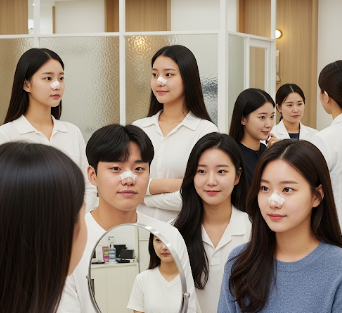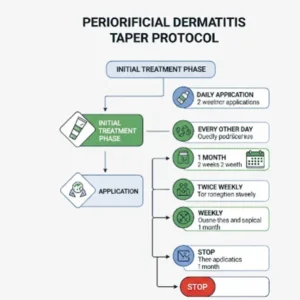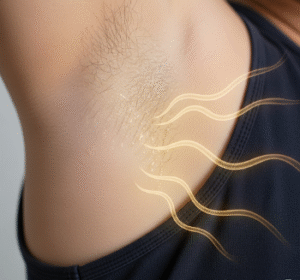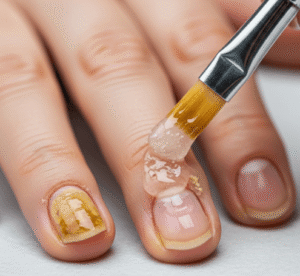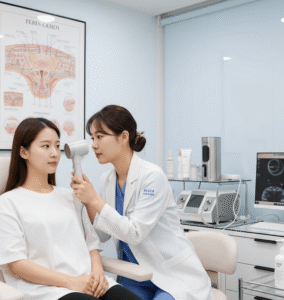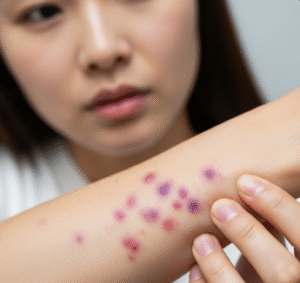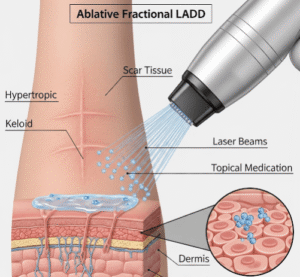Overview
Cosmetic surgery is a medical specialty focused on enhancing appearance through surgical interventions. Unlike reconstructive surgery, which corrects defects caused by trauma or congenital issues, cosmetic surgery primarily aims to improve aesthetic appeal, symmetry, and proportion.
In South Korea, cosmetic surgery is globally recognized for its innovation, precision, and natural-looking results. Hospitals and clinics combine highly skilled surgeons, advanced surgical techniques, and state-of-the-art facilities to deliver exceptional outcomes. Patients from around the world choose Korea for facial surgeries, body contouring, and minimally invasive aesthetic procedures due to the blend of safety, quality, and cost-effectiveness.
What is Cosmetic Surgery?
Cosmetic surgery involves surgical procedures that modify, enhance, or restore physical appearance.
Key types of cosmetic surgery include:
1) Facial Procedures:
- Rhinoplasty (Nose reshaping) – enhances facial balance and appearance
- Facelift (Rhytidectomy) – tightens sagging skin and reduces wrinkles
- Blepharoplasty (Eyelid surgery) – rejuvenates the eyes and corrects droopy eyelids
- Otoplasty (Ear surgery) – reshapes protruding or malformed ears
2) Breast Procedures:
- Breast augmentation – increases volume and improves shape
- Breast reduction – reduces size for comfort and aesthetics
- Breast lift (Mastopexy) – raises and firms sagging breasts
3) Body Contouring Procedures:
- Liposuction – removes excess fat from specific areas
- Abdominoplasty (Tummy tuck) – tightens abdominal muscles and removes loose skin
- Thigh lift, arm lift – improves body contour
4) Non-surgical Procedures (Adjunctive):
- Botox and dermal fillers – reduce wrinkles and restore volume
- Laser treatments – improve skin texture, pigmentation, and scars
- Chemical peels and microdermabrasion – enhance skin tone and appearance
Purpose:
- Enhance natural beauty and symmetry
- Restore youthful appearance
- Correct minor imperfections or congenital deformities
What are the Benefits?
Cosmetic surgery provides both aesthetic and psychological benefits:
✔ Improved physical appearance and facial/body symmetry.
✔ Boosted self-confidence and social interactions.
✔ Rejuvenation and anti-aging effects.
✔ Enhanced mental well-being and self-esteem.
✔ Opportunity to correct congenital or acquired cosmetic concerns.
Procedure Details
1) How should I prepare for Cosmetic Surgery?
- Medical assessment: Complete health check, blood tests, imaging (if needed), and discussion of medical history.
- Medication review: Blood thinners or certain supplements may need to be paused.
- Preoperative counseling: Explanation of procedure, expected outcomes, potential risks, and recovery plan.
- Lifestyle adjustments: Avoid smoking, alcohol, or certain medications pre-surgery.
- Emotional preparation: Setting realistic expectations and understanding recovery time.
South Korean clinics provide personalized preoperative guidance to ensure safety, precision, and patient satisfaction.
2) What happens during Cosmetic Surgery?
- Anesthesia: Local, sedation, or general anesthesia depending on the procedure.
- Surgical process:
- Facial surgeries: Incisions made in natural creases to minimize visible scarring
- Body contouring: Targeted fat removal or skin tightening using advanced techniques
- Breast procedures: Insertion of implants, tissue reshaping, or lifts as needed
- Duration: Varies from 30 minutes for minor procedures to 4–6 hours for major surgeries
- Technique: Surgeons in Korea utilize microsurgical precision, minimal tissue trauma, and symmetry-focused approaches
3) What happens after Cosmetic Surgery?
- Immediate post-op: Swelling, bruising, or discomfort; managed with medications
- Recovery: Non-surgical procedures often require minimal downtime, while surgical procedures may need 1–2 weeks of rest
- Follow-up: Regular visits for wound care, suture removal (if non-absorbable), and monitoring for complications
- Long-term care: Skin protection, lifestyle adjustments, and maintenance procedures for lasting results
Risks / Benefits
Potential Risks:
- ➤ Swelling, bruising, and discomfort
- ➤ Infection at incision or injection site
- ➤ Scarring or pigmentation changes
- ➤ Asymmetry or unsatisfactory results
- ➤ Rare anesthesia-related complications
Major Benefits:
- ✔ Enhanced physical appearance and symmetry
- ✔ Boosted self-esteem and confidence
- ✔ Long-lasting anti-aging effects
- ✔ Corrects congenital or acquired cosmetic concerns
- ✔ Minimally invasive options with rapid recovery in expert hands
Recovery and Outlook
- Non-surgical procedures: Minimal downtime; effects visible within days.
- Surgical procedures: Recovery depends on procedure complexity; typically 1–2 weeks for minor surgeries, 4–6 weeks for major surgeries.
- Follow-up: Ensures proper healing and optimizes outcomes.
- Long-term: With proper care, cosmetic surgery in Korea provides natural-looking, durable results with high patient satisfaction.
South Korean clinics provide structured post-operative care, patient education, and long-term monitoring for optimal outcomes.
When To Call the Doctor
Contact your surgeon or clinic if you notice:
- ➤ Severe pain or swelling beyond expected levels
- ➤ Signs of infection, such as redness, warmth, or discharge
- ➤ Asymmetry or unexpected cosmetic results
- ➤ Allergic reactions to anesthesia or fillers
- ➤ Any complications affecting vision, breathing, or mobility
Best Korea Option / Process
South Korea is a global hub for cosmetic surgery due to:
- Highly skilled surgeons with international recognition
- Advanced surgical and non-surgical techniques
- Minimally invasive options with rapid recovery
- Comprehensive pre- and post-procedure care
- International patient support, including translators, accommodation, and scheduling
- Affordable costs with top-quality outcomes
Top hospitals and clinics for cosmetic surgery in Korea:
- Banobagi Plastic Surgery Clinic
- JK Plastic Surgery Center
- Samsung Medical Center (Cosmetic Surgery Department)
- Asan Medical Center (Aesthetic Surgery Division)

